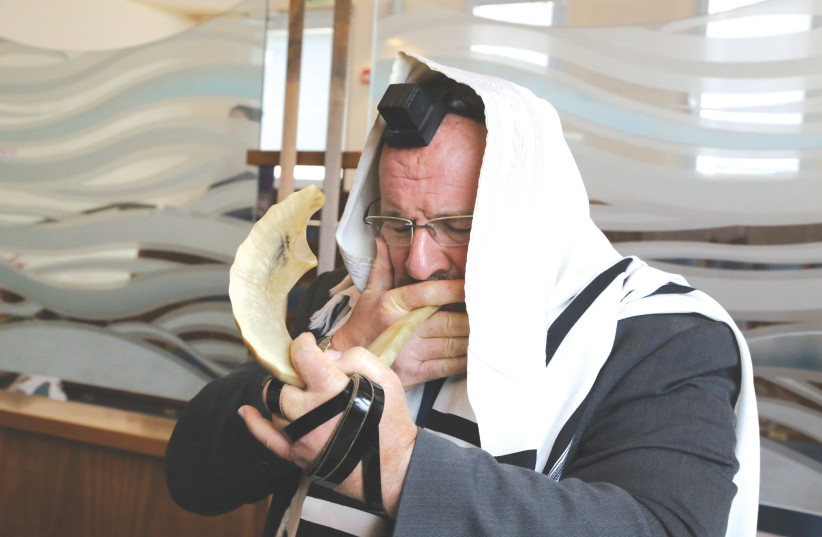Rosh Hashanah 5783 begins at sundown this evening, September 25, and ends at nightfall on Tuesday, September 27. The holiday celebrates not only the Jewish New Year, but also the birth of the universe and the beginning of the Days of Awe – 10 days of repentance and renewal that culminate in Yom Kippur, the holiest day in the Jewish calendar.
The past year, 5782, has been a difficult one for Israel and the world. Although we appear to be emerging from the COVID-19 pandemic, there have been some disturbing global developments – from Russia’s invasion of Ukraine seven months ago to the Vienna negotiations on a new Iran nuclear deal.
Historically, this period will be remembered for the death of Queen Elizabeth II after an almost-record sovereign reign of 70 years (Louis XIV of France reigned almost two years longer) and the beginning of a new era under her son, King Charles III.
In Israel, we are witnessing a turbulent period as the country braces for its fifth election in less than four years (the first was on April 9, 2019). Security has been tightened ahead of Rosh Hashanah as the country also faces a resurgence of Palestinian terrorism.
Are there any good news for a change?
On the positive side, the Israeli economy is showing signs of bouncing back. The Central Bureau of Statistics reported, for example, that the employment rate rose in August to the highest level in four years.

Israel’s ties with Arab and Muslim states are advancing well – especially in the Gulf – as evidenced most recently in talks on a free-trade agreement with Bahrain and Prime Minister Yair Lapid’s meeting with his Turkish counterpart Recep Tayyip Erdogan in New York on Tuesday, the first such meeting since December 2008.
Britain’s Prime Minister Liz Truss told Lapid on Wednesday at the United Nations that she is reviewing a relocation of her country’s embassy from Tel Aviv to Jerusalem, which would also be a welcome development.
Despite Lapid’s speech to the UN General Assembly in support of Palestinian statehood, relations between Israel and the Palestinian Authority remain tense. And although there is cooperation between the two sides on security and trade, there is much room for improvement on the diplomatic level.
Although Israel is still threatened by Iran and Syria, as well as Hamas and Hezbollah, it hopes to reach a US-mediated maritime border agreement with Lebanon in the near future – an agreement that will “benefit regional stability,” according to Lapid’s international spokeswoman Keren Hajioff.
Despite disagreements with the US over the Iran deal, bilateral relations between Jerusalem and Washington are as strong and close as ever. During President Joe Biden’s visit on July 14, he and Lapid signed a Joint Declaration on the US-Israel Strategic Partnership which stated, inter alia, that “the United States and Israel reaffirm the unbreakable bonds between our two countries and the enduring commitment of the United States to Israel’s security,” and “warmly welcome entering the 75th year of this extraordinary partnership.”
Both countries also affirmed their commitment to enable Israeli passport holders to be included in the US Visa Waiver Program “as soon as possible,” a valiant effort that is being led by US Ambassador to Israel Tom Nides.
As The Jerusalem Post celebrates 90 years since it was established by Gershon Agron, we were honored to host a range of American and Israeli figures – including Nides and Defense Minister Benny Gantz – at our successful conference in New York City’s Gotham Hall on September 12.
In our annual Rosh Hashanah magazine published today, which chooses the most influential Jews in the world, we unanimously decided to put Ukrainian President Volodymyr Zelensky at the top of our list. In the words of Amotz Asa-El, explaining in Friday’s paper why Zelensky is Person of the Year: “In his display of courage, patriotism and selflessness, he defied an era of political cynicism, egotism and cowardice.”
While we pray for an end to the tragic war in Ukraine and other areas of conflict, including in the Middle East, we are reminded of the prayer written by British Chief Rabbi Ephraim Mirvis:
“Almighty God, strengthen the hands of those who pursue peace, not war. Bring harmony where there is hostility, relief where there is pain and hope where there is despair.”
Shana tova!
